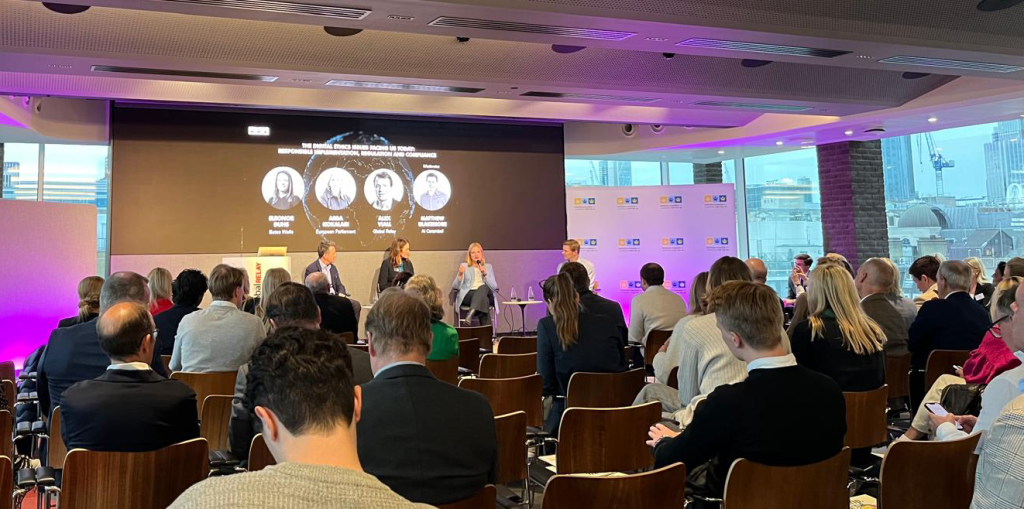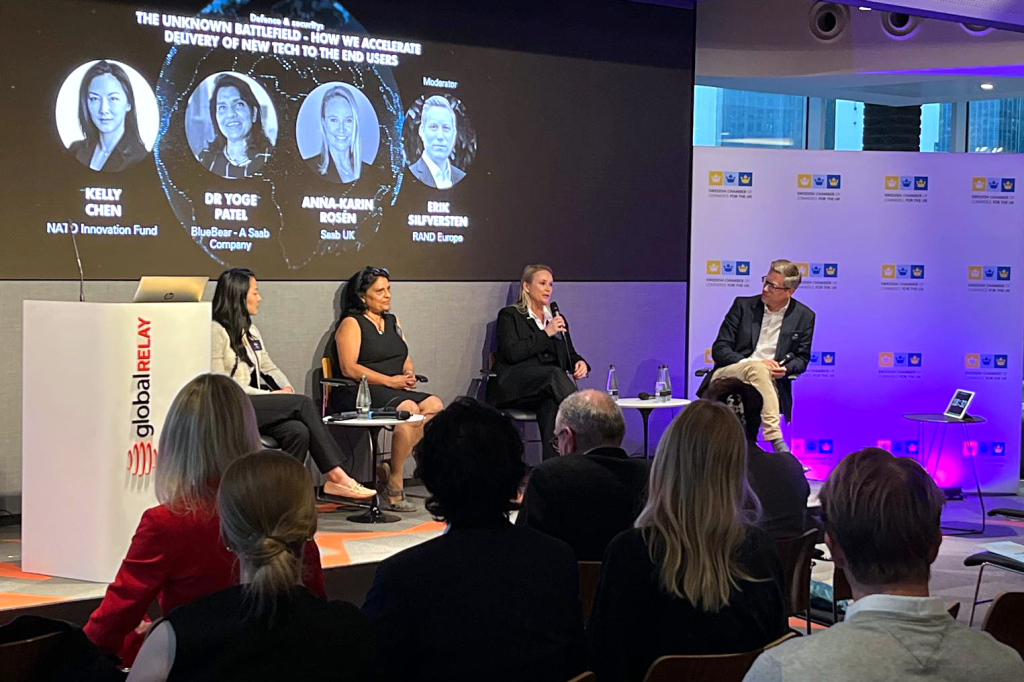Embracing the unknown was a theme running through topics including AI developments, ethics and risks, as well as increasing cyber threats, discussed at this year’s Tech Forum 2024 staged by the Swedish Chamber of Commerce for the UK and hosted in Global Relay’s London office.
As well as highlighting countless possibilities with AI, 6G, and more, panels discussed how to navigate the unexplored terrain of new technology responsibly, how to be ethical, and how to best avoid risks.
Charlotta Kvarnström, partner at EY, said that today, 96% of Nordic CEOs are planning significant investment in Generative AI, compared to 99% worldwide. Yet, 68% of the CEOs agree that the uncertainty of AI makes it challenging to move forward. And 65% of global CEOs see a need to address ethical and legal risks too.
Besides being able to foster quicker developments with AI, Kvarnström addressed the importance of “placing humans in the center of AI”, and the need to empower quality and skills for a sustainable AI ecosystem.
Ethical technology
Arba Kokalari, member of the European Parliament, addressed the lack of regulation to tackle the bad side of technology. “Don’t regulate technology, but regulate the bad behaviour,” she said.
She also emphasized the need for a shared global set of AI rules made by democratic countries to foster a good AI ecosystem.

Photo: Martina Lindberg
Addressing the ethical side of technology, panellists briefly spoke on the use of AI, and whether it can or should be implemented everywhere possible, for example in governments.
“It’s very, very important to not let AI make decisions for us”, said Eleonor Duhs, partner and head of data privacy at Bates Wells.
Growing cybersecurity threats
With growing concern over ransomware attacks, especially with the recent attacks on authorities in Sweden after the country joined NATO, the panellists talked about how digital threats are leading to real-life harm.
“The consequences are real, there are not just digital consequences to digital risks,” said Sandra Barouta Elvin, National Security Office at Microsoft Sweden.
“It’s very, very important to not let AI make decisions for us.”
Eleonor Duhs, partner and head of data privacy at Bates Wells
Dan Patefield at TechUK voiced the need for partnerships to mitigate cyber risks, and said that one can have all the resilience needed, but still be affected by events happening to third-party suppliers.
Professor Luca Viganò at King’s College London also addressed the gravity of working together, and said that “you can’t work alone, you need to set up a team” to managing risks. Kanika Seth, partner at EY, emphasized the “importance of diversity” when setting teams up.
Erik Silfversten of RAND Europe spoke about how defence has changed in the Nordics over the last decades, especially with both Sweden and Finland recently joining NATO, and how the world is “the worst it has been for a long time.”
Yet, even though technology has opened up many new opportunities to cause harm, the panellists also discussed how technology can help defense when fighting on what is being termed “the unknown battlefield” of tech warfare. But, while it is important to focus on the defense and security aspects of the businesses, the main area of focus should be behavior, they concluded.













